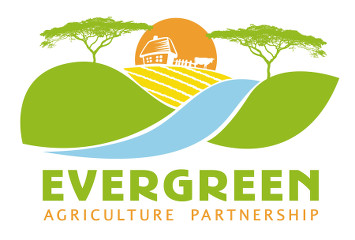 Deforestation and intensification of agricultural production is increasing to meet a growing food demand. Under these conditions, soils are degrading, with continuous cropping extracting nutrients, removal of green cover and over tillage exposing soils to high heat, depleted organic matter, poor soil structures. As a result extensive areas of land are becoming badly degraded, with infertile soils, high rates of erosion and desertification.
Deforestation and intensification of agricultural production is increasing to meet a growing food demand. Under these conditions, soils are degrading, with continuous cropping extracting nutrients, removal of green cover and over tillage exposing soils to high heat, depleted organic matter, poor soil structures. As a result extensive areas of land are becoming badly degraded, with infertile soils, high rates of erosion and desertification.
EverGreen Agriculture systems that integrate trees into food crop systems can play a major role in restoring degraded lands. Even in the Sahel’s arid landscape, the reintroduction of trees through FMNR, has led to productive agricultural land and improved food security for over 3 million people.Trees that are able to fix nitrogen through their leaves and roots play an important role in restoring soil fertility, and supplementing crops. Trees of many types however (fertiliser trees and others) provide multiple benefits for soil health including:
- Mulch and organic matter from leaves and roots improves soil water holding capacity and structure
- Shading minimise soil temperatures and evaporation of moisture
- Roots improve soil structure and prevent erosion as well as cycling nutrients from deeper in the profile
Related Resources
Publications
http://www.worldagroforestry.org/downloads/publications/PDFS/b09008.pdf
Links

